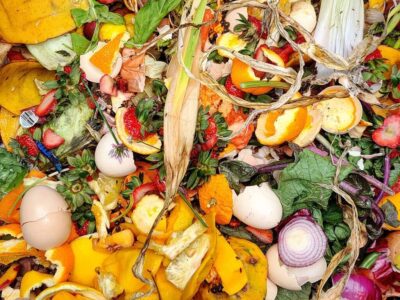
Current M.S. in Sustainability Management (MSSM) student Henry Gordon-Smith began his studies at the University of British Columbia in Vancouver. Soon thereafter he studied at Ryerson University in Toronto, where he specialized in Food Security and Urban Agriculture. When a job opportunity led him to New York, he ended up deciding to join the MSSM program to expand on his undergraduate studies of sustainability. Gordon-Smith has continued to focus on sustainable food production and alternative modes of agriculture through his internship at Sky Vegetables, and also through his popular blog AGRITECTURE: Buildings That Grow Food. Through these outlets, Gordon-Smith is able to apply the diverse skills he has obtained in the MSSM program to create real world solutions and foster new dialogues about sustainability.
1. What drew you to the Master of Science in Sustainability Management (MSSM)?
Before Columbia, I was studying Food Security and Urban agriculture at Ryerson University in Toronto. In 2010 I visited NYC for an interview with BrightFarms to pursue my passion for sustainable urban agriculture. I was so fascinated by the business plan to construct greenhouse farms on top of supermarkets thereby reducing the distance between producer and distributor. Unfortunately, I didn’t get the job but I stuck around and visited the MSSM orientation. I saw the program as an opportunity to broaden my knowledge of sustainability. The group work was what attracted me most to the program.
2. What do you intend to do professionally once you achieve your degree?
I want to be a leader in the small (but growing) field of building-integrated agriculture (BIA). I hope to get a job with a company in NYC that owns and operates rooftop hydroponic greenhouse farms. Currently, I am interning with Sky Vegetables, a company that has just constructed a rooftop commercial farm on a LEED platinum affordable housing complex in the Bronx.
3. What do you think is the most important sustainability challenge?
Wow. Big question. I don’t claim that this is the most important challenge but it is one that I wish to build a career solving: I think that us urban dwellers have lost our relationship with food and that we need to get that back through integrating sustainable food production into the tapestry of urban planning. How to get people to value local food production is the challenge that matters most to me.
4. Beyond the classroom, what extracurricular sustainability related activities have you engaged in?
In 2011 I started to blog about what I see as the future of urban farming: building-integrated agriculture (BIA). At first, my blog AGRITECTURE: Buildings That Grow Food was only about sharing interesting urban farming solutions and concepts. Sometimes it would be an image of a concept vertical farm, other times it would be a company that was developing an urban farming solution. As the industry evolves, so does the blog. It has expanded into news updates on actual projects and some analysis about BIA trends. I am now looking to address the challenge that matters most to me that I mentioned in the previous question. I am hoping to make the site more collaborative and organizing it as a data source based upon the philosophy that urban food security is good for all of us and so its best practices should be shared with everyone. I suppose in some ways I am trying to both disrupt and drive the competitive nature of business and sustainability in relation to urban agriculture by sharing the future and the present simultaneously.
5. How has collaborating with your fellow students in projects in the classroom benefitted you professionally and personally?
I believe that sustainability is fundamentally a process, and, as such, demands more than just the ability to get from A to B: it requires ingenuity, commitment, collaboration, and adaptability. The collaborative work in the program has taught me to identify and value the diverse skills necessary for a team to develop sustainable solutions. Last semester, I worked with Toby Li, Shahneeyam Reza, and Yoko Takemura on designing a rainwater collection system for farmers in Guatemala. Professionally, it taught me to listen to and value the financial, energy, and water aspects of a viable solution through my colleagues’ individual expertise. Personally, I have become great friends with that team and others, and we often go out for drinks and spend hours “nerding out” about sustainability and nothing else.
The M.S. in Sustainability Management, co-sponsored by the Earth Institute and Columbia’s School of Continuing Education, trains students to tackle complex and pressing environmental and managerial challenges. The M.S. in Sustainability Management program requires the successful completion of 36 credit points. Those credit points are divided among five comprehensive content areas: integrative sustainability management, economics and quantitative analysis, the physical dimensions of sustainability, the public policy environment of sustainability management, and general and financial management. Please visit our website to learn more about the program.



